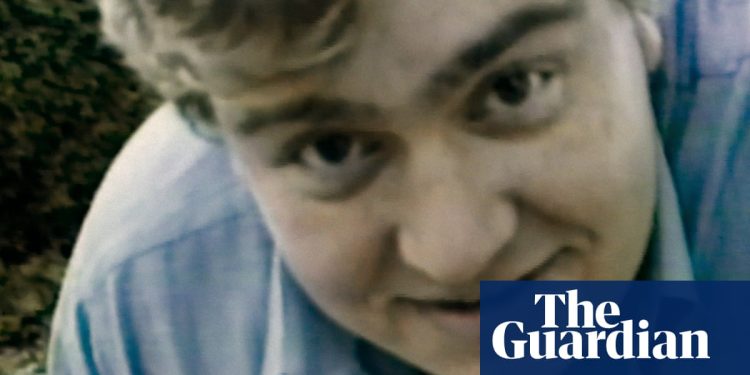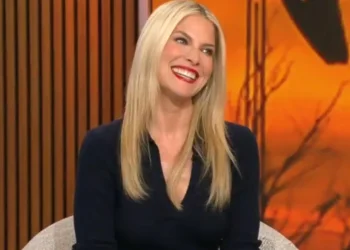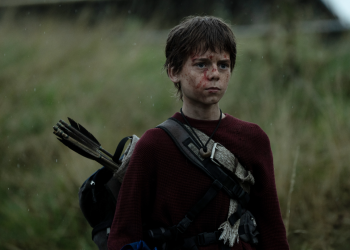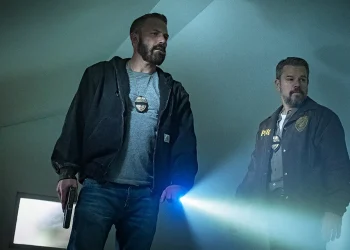Amazon’s new documentary John Candy: I Like Me takes its title from a famous scene that surprisingly takes place early in the 1987 comedy Planes, Trains and Automobiles.
In what is arguably Candy’s most beloved performance, he plays Del Griffith, a mild-mannered but initially irritating traveling salesman who ends up accompanying the stuck-up Neal (Steve Martin) on a series of cross-country misadventures, trying to get home for Thanksgiving.
After Neal vents his frustrations, Del responds with a complete lack of sincerity: “Yeah, you’re right, I talk too much. I also listen too much. I might be a cold-hearted cynic like you… but I don’t like to hurt people’s feelings. Well, you think what you want about me; I don’t change. I like myself. My wife likes me. My clients like me. Because I’m the real article. Which you see is what you get. » The position he takes in that moment in self-defense informs the character for the rest of the film.
For Colin Hanks, director of I Like Me, the trick was not necessarily to present this famous scene from this famous film, although his documentary of course contains numerous clips of planes, trains and automobiles. Hanks was struck by how often Candy – who was sometimes rightly described as being better than the material she was given – brought that same talent to other roles: “I was really surprised by the nuance of some of the performances. There are bits and moments where I see something that’s like the ‘I like me’ moment, but in a lot of (other) films. They maybe don’t have the same weight or importance dramatic, but I can see something unique or different. “
Hanks has a lifetime of experience finding those Candy moments. There’s the not-insignificant fact that as the son of Candy’s Splash co-star Tom Hanks, he knew the man. He also knew Candy’s son Chris and daughter Jennifer before their time on I Like Me – all three Hollywood kids went to the same university, but not at the same time. But what’s more, like so many people, Hanks grew up watching the Candy movies.
“When I was younger, I was absolutely obsessed with Who is Harry Crumb?” he said, laughing and acknowledging that the critically maligned flop could be a “controversial” choice for a favorite Candy movie. “There was something about that movie and her performance that was deliciously silly and perfect, and made me laugh,” Hanks added, before describing a very specific Candy hand gesture that he knew he wanted to capture in the film, which he ranted and screenshotted to send to his editor so he could see precisely which moment to cut. “I was like, I can’t do the John Candy documentary without putting him in the film.”
However, I Like Me isn’t just a greatest hits reel. “You could make a documentary based solely on his career and his talent, and it would be worth it, but I also don’t want to just make a Wikipedia entry,” Hanks said.
The film includes home video footage of Candy with his family, rare television interviews (revealing less what the interviews get out of him than how visibly uncomfortable he is with some of their more invasive questions), and a focus on the psychology that drives him, through both his family’s happiness and growing health and self-image problems. Despite this last point, he is not portrayed as a comedian constantly beset by torturing demons.
In fact, the flood of celebrity interviews — with Martin Short (“Nobody’s going to say no to you,” Hanks recalled Short telling him), Catherine O’Hara, Eugene Levy, Steve Martin, Dan Aykroyd, Conan O’Brien, Colin’s father Tom, and the elusive Bill Murray — portray someone whose on-screen likability came from real nobility. Murray jokes in the film that he wishes he had more dirt to talk about than a Candy anecdote that mildly annoyed director Sydney Pollack during a live event by drawing a big laugh. Hanks also pointed out that of the three “great actors” who died in their prime, two of them died of drug overdoses and one of them didn’t, and I thought there was something interesting in that.
But that doesn’t mean that Candy’s life doesn’t have a sadder dimension. Hanks clung to Candy’s life when he discovered the actor had lost his own father when he was five. “I just thought, from a human perspective, this is heartbreaking. What’s it like to live with this, both as a child and as an adult?” Hanks said. “And once I talked with Chris and Jen (I found out), he was getting to the point in his life where he was starting to look at this stuff, in therapy, and trying to resolve these elements of him that made him who he was.”
Chris and Jennifer Candy, co-executive producers of the film, welcomed the opportunity to work with the filmmakers for a more definitive film about their father. Jennifer pointed out that these types of celebrity-driven documentaries have changed a lot over the years, moving away from the True Hollywood Story style of exploitation.
This is certainly the case with I Like Me, which at times borders on, if not sanitized, a bit vague on some personal details, as it balances the off-camera story with an appreciation of his career. Some of the most joyous moments Hanks captures come from others speaking fondly about their favorite moments, like Conan O’Brien (who only met Candy once, as a young man) rapturously recalling the particularly dark (and, he’s right, absolutely hilarious) SCTV sketch Yellowbelly. According to Hanks, eliminating the SCTV material was the most difficult task of managing the film’s clips: “That sequence could have been 40 minutes long.”
With that in mind, the Candy kids enthusiastically offered their own recommendations for underrated Candy performances. Jennifer loves Once Upon a Crime, a lesser-seen mystery comic by Eugene Levy, Candy’s colleague at SCTV. Chris will fight for Nothing But Trouble, another comedian-directed film, this one from the psyche of Dan Akyroyd. “I still think the movie is pretty interesting,” Chris said. “It’s like the postmodern Ghostbusters. It’s weird, but in the context of my dad’s career and catalog, the fact that he’s willing to do this and clown around is pretty awesome.”
Years later, some of the weirder or less popular films in Candy’s filmography now seem more interesting, both because of his overall rarity and what he brings to the films in question. It goes back to those moments of nuance that aren’t limited to his certified classics. “Being able to find these little moments in, hell, might be Nothing But Trouble, it’s inspiring to me as an actor,” Hanks said, referring to the work for which he is best known. “It’s a good reminder that I can find these little moments, even if it doesn’t seem like this job or this scene is going to serve that purpose.”









